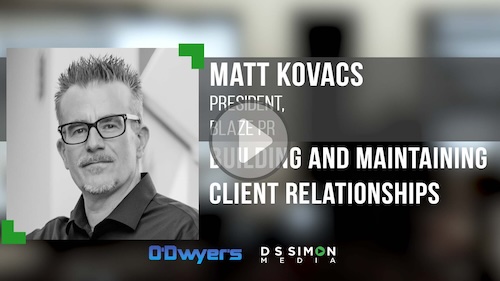|
|
It’s been a big month for apologies.
• President Obama apologized to Doctors Without Borders for the American botched bombing of a field hospital in Kunduz, Afghanistan, that resulted in the deaths of 12 staff members and seven patients.
• Twitter’s once-again-CEO Jack Dorsey apologized for the company’s laggard ability to attract new users and make money.
• United’s new CEO Oscar Munoz took to Youtube to apologize to employees and customers for the reputation-bashing United/Continental merger, that has raised fares, tempers and criticism of the world’s largest airline.
Apologies, of course, have always been tricky PR propositions. For example:
• Republicans chastise Obama for his quick-trigger propensity to publicly apologize for all manner of American mistakes, from burning Qurans in Afghanistan to harsh treatment of prisoners in Iraqi to producing a moronic film that made fun of the Prophet Mohammed.
• Observers criticize Dorsey for bashing unnecessarily the company he has been brought back to run.
• Aviation consultants take Munoz to task for overdoing the poor-service confessions, thus amplifying a misperception about United’s performance.
• And then there was the book a few years ago in which two public relations consultants argued that apologies showed weakness and should be avoided.
The real point, of course, is that apologizing is one thing, but taking action to fix problems is quite another. Stated another way, apologies are meaningless without prompt corrective action. And it’s the job of the public relations professional to ensure that such action is integral to the apology.
Take President Obama’s apology for the tragic U.S. bombing of the Afghan hospital. Here’s what’s got to happen next.
1. Allow an independent investigation. In “receiving” the Obama apology, Doctors Without Borders called for an independent investigation by the International Humanitarian Fact-Finding Commission to find out what happened in Kunduz. Obama initially rejected that idea, arguing that investigations by the U.S. Defense Department, NATO and others would reveal all facts.
The President should rethink this rejection. The International Humanitarian Fact-Finding Commission was created by the Geneva Conventions to investigate violations of international humanitarian law. Its current members are from 15 different nations but not America
Nonetheless, to demonstrate that the U.S. is serious about finding the truth in this awful incident, President Obama should consent to Doctors Without Borders’ call for this particular body to investigate the Kunduz bombing.
2. Quickly investigate and announce the findings. Regardless of the pace of other investigations, the Defense Department investigation should be concluded quickly and the findings should be announced in detail, answering the perplexing questions that already have been aired
• Did the Afghans, as U.S. Gen. John Campbell suggested, ask the Americans to bomb the area?
• Were both Afghan and American commanders notified during the bombardment, as Doctors Without Borders contended, that the hospital was under fire?
• How high up in the military chain of command were the decisions made to bomb the hospital?
These pressing questions need to be answered quickly by the U.S., letting the chips fall where they may.
3. Deal with those responsible. Finally, since this tragedy appears to be such a blatant violation of international law, not to mention a stain on the integrity of the U.S. military and a stain on the humanitarian record of the U.S. itself, heads should roll.
Gen. Campbell adamantly refused to name names in his testimony, allowing that one purpose of the investigations would be to identify those responsible. Once those individuals — most particularly, the commanders who gave the orders to bomb the hospital — are singled out, they should be dealt with appropriately.
There is no way to sugarcoat America’s bombing of the Kunduz hospital. It was a fatal mistake, pure and simple. America’s apology for this tragedy was the proper response. Now we need to get to the bottom of what happened and take action against those responsible.
The point, again, is that apologies are fine as far as they go; but eminently more important is that the mea culpa is quickly followed by action that corrects the problem.
* * *
Fraser P. Seitel has been a communications consultant, author and teacher for 40 years. He may be reached directly at [email protected].











 Have a comment? Send it to
Have a comment? Send it to 
No comments have been submitted for this story yet.